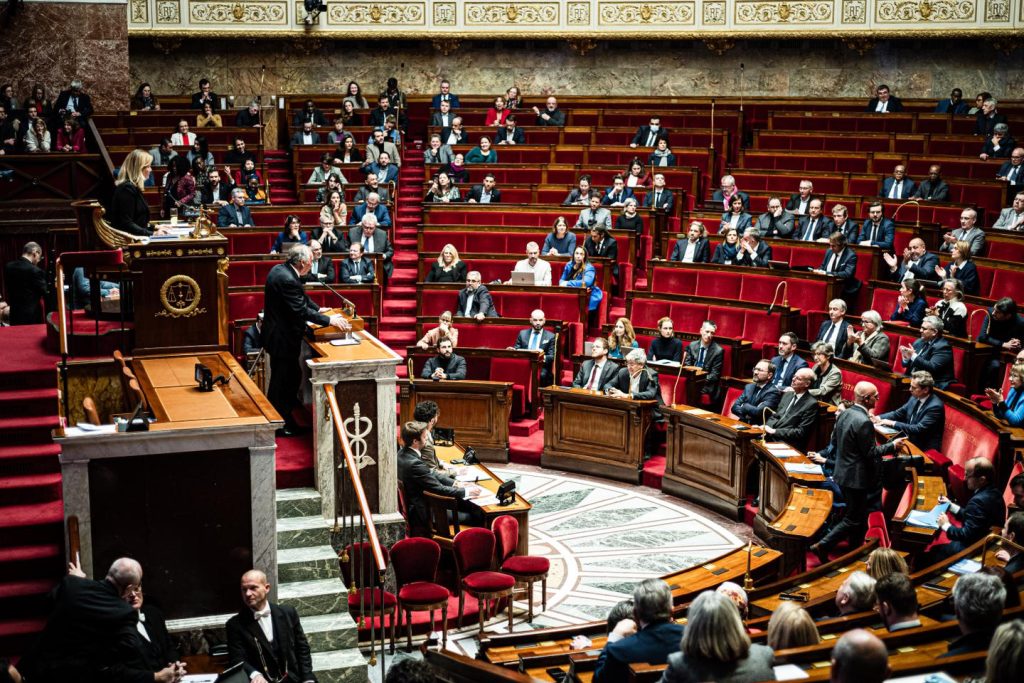A Historic Victory for Elisabeth de Maistre: Returning the 9th District to the Republicans
Elisabeth de Maistre, the 49-year-old deputy mayor of Boulogne-Billancourt, made history on Sunday, February 9, by winning the partial legislative election in the 9th District of Hauts-de-Seine. Running under the banner of the Republicans (LR), she successfully reclaimed a seat that had been lost by her party in 2017. With an impressive 59.65% of the votes, she triumphed over her opponent, Antoine de Jerphanion of the Horizons party, who secured 40.35%. This victory not only marks a significant win for the Republicans but also underscores de Maistre’s growing influence in French politics.
De Maistre’s journey into politics began in 2014 when she joined forces with Pierre-Christophe Baguet, the mayor of Boulogne-Billancourt and a fellow member of the Republicans. Initially, she was just a satisfied citizen supporting her mayor but soon found herself drawn into the political arena. Her background as a lawyer and later as a parliamentary assistant to Senator Christine Lavarde (also of the Republicans) laid the groundwork for her political career. She quickly proved herself to be a dedicated and effective leader, taking on the role of assistant mayor responsible for early childhood education—a position she describes as managing "the second budget of the city."
The partial legislative election was triggered by the appointment of Stéphane Séjourné, who was elected in July 2024, as a European Commissioner later that fall. This created a vacancy that de Maistre was well-positioned to fill. Baguet, her long-time political ally, stepped in as her substitute during the campaign, further solidifying her candidacy. When de Maistre was officially nominated by the Republicans in January, it was clear that she was the party’s strongest contender for the seat. Her track record of dedication and her deep understanding of local issues made her a compelling choice for voters.
A Vision for the Future: How de Maistre Plans to Serve Her Constituents
Looking ahead, de Maistre has expressed her commitment to working closely with her party to "vote the laws with [her] band," emphasizing her loyalty to the Republican platform. Her experience in local government has equipped her with a practical understanding of the challenges facing her constituents, particularly in areas such as education, public safety, and economic growth. She has already signalled her intention to champion policies that reflect the values of her party while addressing the specific needs of her district.
The response from her party has been overwhelmingly positive. Laurent Wauquiez, the leader of the Republican deputies in the National Assembly, congratulated de Maistre on social media, praising her for "forcefully carrying our values." Bruno Retailleau, the Minister of the Interior, also praised her victory, highlighting the "encouraging dynamic" within the party. He stressed that when the right-wing fully embraces its convictions and communicates them with clarity and sincerity, it has the power to unite and convince voters.
The Bigger Picture: What de Maistre’s Win Means for the Republicans
De Maistre’s victory is not just a local success; it holds broader implications for the Republican party as a whole. The 9th District of Hauts-de-Seine, often seen as a microcosm of the political landscape in France, is known for its affluent communities and traditionally conservative leanings. Winning back this seat after losing it in 2017 is a significant boost for the Republicans, indicating that the party is regaining traction in key areas. Moreover, de Maistre’s success could serve as a blueprint for other Republican candidates, demonstrating the importance of combining local roots with a clear national vision.
A New Chapter for Boulogne-Billancourt and Beyond
As de Maistre takes her seat in the National Assembly, she carries with her the hopes and expectations of her constituents. Her election is not just a personal achievement but also a testament to the enduring influence of the Republican party in Hauts-de-Seine. With her background in law, her experience in local government, and her unwavering commitment to her political ideals, de Maistre is well-positioned to make a meaningful impact in French politics. Her victory is a reminder that, even in an increasingly fragmented political landscape, a strong candidate with a clear message can still command broad support and achieve great things.
In the days and weeks ahead, de Maistre will undoubtedly face the challenges inherent in her new role. However, based on her track record and the confidence she has inspired in her party and her voters, there is every reason to believe that she will rise to the occasion. As she begins this new chapter in her political journey, Elisabeth de Maistre stands as a symbol of hope and renewal for the Republican party—and for the people of Boulogne-Billancourt and beyond.












